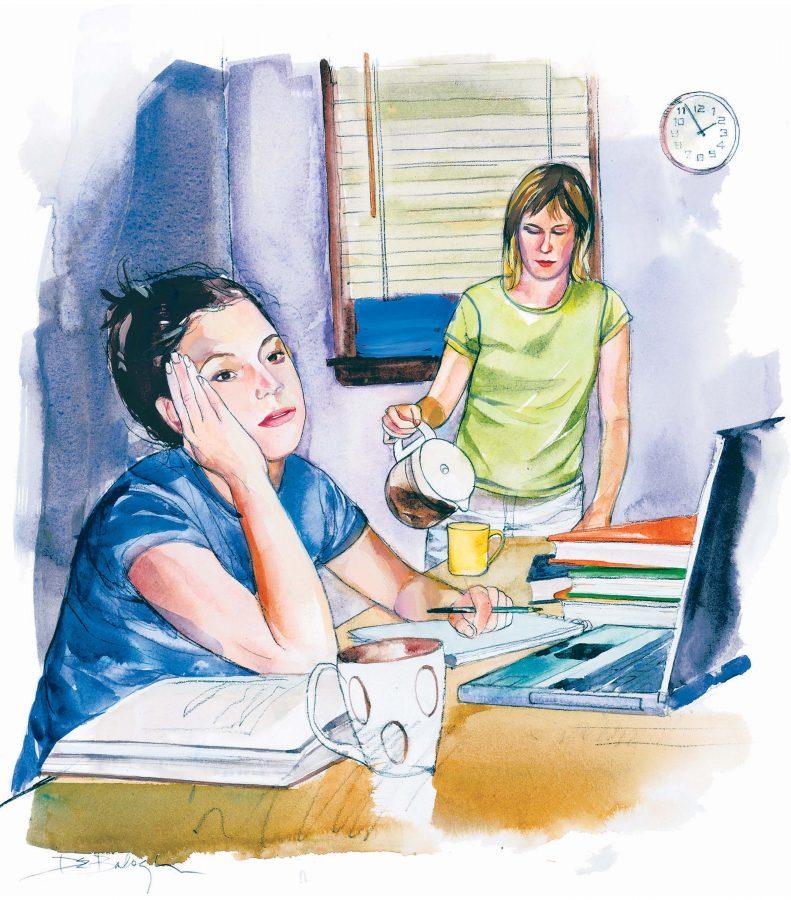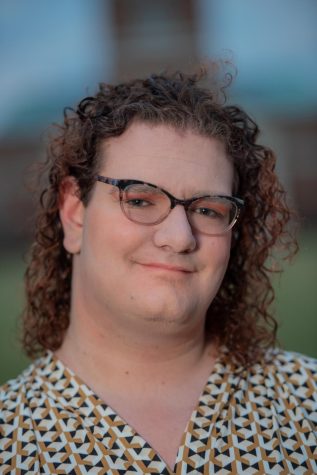How to not lose your mind at college
Learn the ins and outs of the various mental health resources around campus
August 19, 2021
Living on one’s own for the first time is exhausting. Between keeping a clean room, making sure you actually eat something every day, keeping up with schoolwork (they don’t call this school “Work Forest” for nothing) and balancing any doctor’s appointments you need, things can slip through the cracks fast. Ironically, one of the things that makes this balance easier is often the first to slip through a student’s fingers: mental health and wellbeing.
Luckily, Wake Forest and the surrounding community have plenty of resources to help, both in the form of interventions and holistic activities. Here is just a sampling of the things I have found helpful.
Interventions — not to be confused with a group of your friends saying that your life is going down the wrong path — is a term used in the world of mental health to mean anything that requires the help of a professional. There is nothing wrong with seeking the help you need for mental health, and anyone who says otherwise is flat out lying to you. College is a time of incredible transformation and personal growth, and not all of that growth is going to be pleasant. The best way to address those mental growing pains (and any other mental health concerns you might have) is to find a good therapist right off the bat.
Finding a good therapist can be a bit of a wild goose chase. The good news is that the first step of your search is maximally one mile from your dorm room at the University Counseling Center (UCC). I would recommend visiting there first no matter what, although if you need weekly appointments, that could be an issue. However, the UCC referred me to an amazing therapist when I had my intake appointment there, and the people on staff there know the surrounding community very well. So, even if you are certain you do not want to see a UCC therapist, go there anyway.
The UCC also offers some group therapy sessions, some based around identity and some around certain presenting issues. If that sounds like your scene, go for it. The UCC also has some general wellness programs that focus more on mental fortitude and preventative care rather than curative care.
The same advice goes if you are looking for a psychiatrist. Go to the Student Health Center (SHS) first and meet with a psychiatrist there to get started. Waiting times for psychiatrist appointments are fairly awful right now due to many people discovering mental health problems during quarantine, so the likelihood of getting to see an outside psychiatrist before October is slim, unfortunately. So have the SHS psychiatrists get you started, and if you still think an outside psychiatrist will better suit your needs, have that appointment (for October or whatever, ugh) in your back pocket.
Finally, if religion is a large part of your life (or if some of your mental health issues come from wrestling with the concept of a higher power), the Office of the Chaplain has resources for spiritual guidance regardless of faith. Also, religious student associations such as the Muslim Student Association (MSA), Hillel, the Hindu Student Association (HSA), etc. can help point you toward places to worship and outside religious counseling.
Finally, if anything mental or physical is impeding your academic experience, the Learning Assistance Center provides incredible help to anyone who needs it, including but not limited to accommodations and professor outreach options.
The idea that spending time outside can cure a mental ailment is ridiculous, but getting out in the sunlight and finding community can certainly supplement mental health treatment. Wake Forest has some amazing outdoor spaces that can serve as places of quiet reflection and rejuvenation. For example, Reynolda Gardens, located in Reynolda Village, is a wonderful place to be among nature, meditate and forget one’s cares for a while. Volunteering at the Campus Garden can also help get you closer to nature.
The importance of finding community at Wake Forest cannot be overstated. Community can take many forms, and all of them are important, but belonging to organizations that are doing work you care about (like the Old Gold & Black) can be crucial to mental wellbeing. Culture groups are also a great way to stay connected to others who share your roots, especially if not many people on campus share those roots. There is so much about the college experience that is in flux, it can be helpful to stay connected to a little bit of home, or keep a few of those roots you planted in your first 18-19 years of life.















